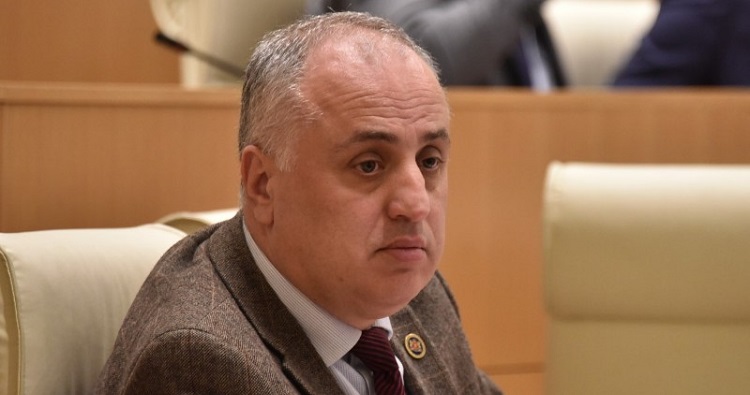Georgian MP accuses US Ambassador of using “talking points” of UNM opposition

Khundadze’s criticism comes after Degnan reacted to a statement by the movement - composed of former ruling Georgian Dream party MPs who exited the team in June - that alleged interference in Georgian institutions in the language of the Embassy’s comments on reforms. Photo: Parliament of Georgia
Dimitri Khundadze, an independent MP and a member of the Popular Force movement, on Wednesday said it was “very sad” that the United States Ambassador to Georgia Kelly Degnan “uses the talking points” of the opposition United National Movement party in her response to the movement’s criticism of the Embassy’s wording of a document on the country’s judiciary reform.
Khundadze’s criticism comes after Degnan reacted to a statement by the movement - composed of former ruling Georgian Dream party MPs who exited the team in June - that alleged interference in Georgian institutions in the language of the Embassy’s comments on reforms.
I think that her [Kelly Degnan] diplomatic language is absolutely beyond the standard set for everyone. She says that the questions that she avoids every day were non-arguable, and today she practically finally confirmed that she was not going to answer the questions that interest not only us, but also the public”, Khundadze said.
I think her attitude confirms the fact that she is a party [in Georgia’s domestic political process], because not only does she not speak in a diplomatic language, but she has already started using the talking points of the United National Movement”, he concluded in his comments.
Degnan on Wednesday said the allegations of the Embassy’s interference in the judicial reform were “reckless conspiracy theories” and had no basis.
The comment came after the statement by Popular Force on Tuesday said the US diplomatic office used “disrespectful and crass attitude” towards Georgian state institutions in the document, pointing to a frequent use of the term “should” - and only making “recommendations” in a few places - with regards to reform initiatives to be undertaken in Georgia’s judiciary.
 Tweet
Tweet  Share
Share